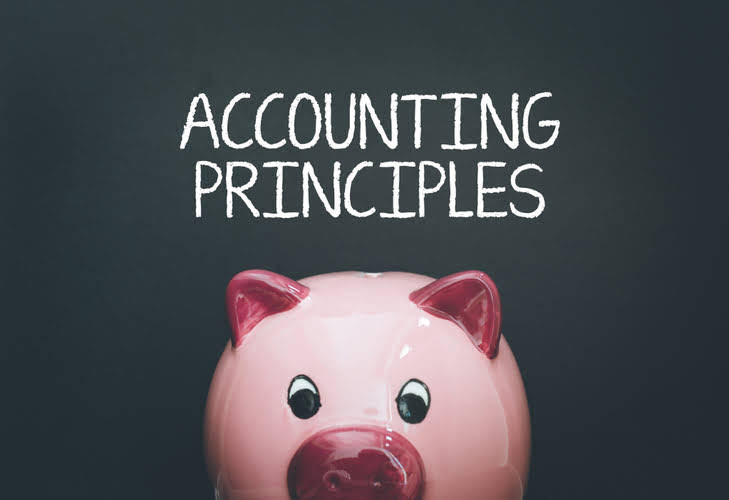
Regardless of the method you choose, accurate and up-to-date bookkeeping is crucial for monitoring your cash flow, tracking your business’s performance, and identifying areas for improvement. From April , instead of filing an annual self-assessment, you’ll need to use MTD compliant accounting software to keep track of your financial records and submit quarterly income tax updates to HMRC. Accounting is the process of taking that information and either reporting or analysing it – for example submitting your tax return as well as ensuring the records comply with traditional accounting methods. Furthermore, reviewing bank statements and reconciling accounts provides an opportunity to detect any discrepancies or fraudulent transactions. It is important for sole traders to keep up-to-date with their financial records throughout the year so that they can make informed decisions regarding investments or other expenditures. Effective sole trader bookkeeping requires careful organisation, regular review of financial statements, and the willingness to seek help when needed.
Monitoring Accounts Receivable and Payable: Staying On Top Of Your Invoicing And Payments

As a sole trader, it is essential to keep track of all monetary transactions and maintain records that can be used for tax purposes or audits. Businesses that use accounting systems have five times more customers than businesses that don’t, according to GoRemotely. The best sole trader accounting software allows you to view tax estimates all year round, which gives you an idea of how much you’ll have to pay when tax season comes.
- It also makes it easier to identify potential issues such as write off bad debt or spot opportunities where you can improve cash flow.
- This could be useful when trying to reduce the amount of money being spent overall or for claiming tax relief or allowances available.
- It involves recording and organising your financial transactions, including income, expenses, and taxes.
- Recording sales involves documenting all revenue earned from selling goods or services.
- You can opt for the standard VAT scheme or Flat Rate VAT, which was set up to help reduce the admin load for smaller businesses.
- Go above this, and you’ll need to start paying £30 per month (exc VAT) for the Standard plan.
Affordable, all-inclusive accounting packages designed for your small and growing business.
- Prepare for Year-End and Tax Season – This involves summarising the year’s financial activities, organising records for tax filing, and evaluating the business’s financial health.
- Stay informed about tax regulations, discover effective tax-saving strategies, and ensure compliance with our comprehensive tax guides and tips.
- With HMRC approved categories, Countingup’s automatic expense categorisation feature helps to keep your financial records organised.
- To write off bad debt in your books, start by creating an expense account called “bad debts.” Then, move the amount of the unpaid invoice from the accounts receivable ledger to this new expense account.
Exceptional customer service is a standout feature not as pronounced in other accounting providers, making Sage ideal for those who value this kind of reliable and extensive support. However, its user interface is generally not regarded to be as intuitive as Xero’s, so for a more user-friendly experience, Xero could be a preferable choice. How much this impacts you will, of course, depend on how many clients your business has – but it feels like a rather strict limit given the monthly cost.

How Can Expanding Overseas Drive Growth for Small Businesses
Keeping track of your income and expenses allows you to know how much money is coming in and going out, which helps you make informed decisions about pricing, budgeting, and future investments. Having updated and accurate records ready before auditors arrive will save you time and help in identifying any adjusting entries areas where improvements are needed to adhere better to AASB standards. In some cases, customers can’t or won’t pay their invoices, leaving you with bad debt.
Start using Countingup’s sole trader accounting software today

If you’re looking for basic accounting software and support to guide you every step of the way, then Sage Business Cloud Accounting could well be your best option for self-employed accounting software. The 24/7 support on offer is unrivalled, but for sole trader accounting most freelancers and sole traders, the feature list is a bit limited for the price. Staying on top of your cash flow (money flowing in and out of your business) is key to maximising its performance. Sole trader accounting software like Countingup is the perfect tool because it automatically updates your records as money enters or leaves your business. Using the best sole trader accounting software means that you won’t have to manually update multiple spreadsheets and logbooks whenever you need to make a change in your records.
- Analysing financial ratios can provide valuable insights into the performance of your business.
- It’s crucial also to record retention for sole traders through the reconciliation process.
- While accounting covers the more general process of managing your accounts and can involve strategic planning, sole trader bookkeeping goes into the details.
- Business bank accounts offer a variety of features and security measures that allow many business owners to utilize a single account solution.
Firstly, it helps you keep track of your finances and make informed business decisions. Secondly, it ensures that you are paying the correct amount of tax https://www.bookstime.com/ and can help you avoid penalties for non-compliance. Finally, it provides you with a clear picture of your business’s financial health, which is important when seeking funding or applying for loans. Once you have decided on a method for your sole trader record keeping, you can start creating accounts and categories that represent different types of financial transactions in your business. For example, opening separate accounts for sales revenue versus expenses allows you to track where money is coming from and going out.
We will customize a plan to fit your budget and management style.
Budgeting may seem like an impossible task when you’re running a small business as a sole trader. Start by reviewing historical records such as profit-and-loss statements from prior years or similar businesses in your industry to identify trends and set realistic revenue and expense goals. Sole traders should also regularly perform a physical inventory count to ensure that the inventory records match what is actually in stock. Recording transactions is crucial for sole trader bookkeeping, as it provides an accurate record of the financial activities of your business.
Forecasting Cash Flow and Future Tax Liabilities
- Overall, as a sole trader, it is important to stay on top of your bookkeeping and comply with HMRC regulations.
- Regardless of the method you choose, accurate and up-to-date bookkeeping is crucial for monitoring your cash flow, tracking your business’s performance, and identifying areas for improvement.
- This will make it easier to reconcile bank accounts and create accurate profit and loss statements.
- Proper bookkeeping is not an optional task for sole traders, but rather a vital one.
- Seek advice if needed and take record keeping seriously in order to ensure that you meet all of your obligations in full.
- By tracking these items over time through accounting software or spreadsheets, you can create an accurate projection of future cash flows.
When in doubt, please consult your lawyer tax, or compliance professional for counsel. Sage makes no representations or warranties of any kind, express or implied, about the completeness or accuracy of this article and related content. If you are a customer with a question about a product please visit our Help Centre where we answer customer queries about our products. When you leave a comment on this article, please note that if approved, it will be publicly available and visible at the bottom of the article on this blog.
Better chance of getting paid on time
Next, we gave a ‘relevance weighting’ to the final product category scores – this ensures the products’ final ratings perfectly reflect the specific needs and requirements of Startups readers. If, for example, you’re VAT registered, then it’s going to make a real difference if you choose software that lets you directly submit VAT returns to HMRC. And if you know you’ll need to calculate Construction Industry Scheme (CIS) deductions, then look for a plan that offers this. Nonetheless, FreshBooks doesn’t provide the same depth of features for extensive business scaling as Xero, making Xero more suitable if you’re planning for fast growth.
Comentários